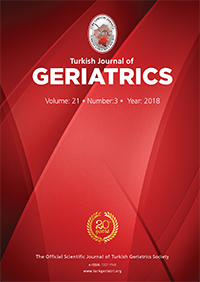Materials and Method: The prospective observational study that carried out between February 29 to April 30, 2016 included patients with age ?65 years who were referred to emergency department and did not have any trauma history.
Results: The mean age of 1106 patients included was 77.23±7.41 years and 52.3% (n=578) were female. In the prediction of hospital admission, AUC for Rapid Emergency Medicine Score, Rapid Emergency Medicine Score-Lactate, Modified Early Warning Score and Modified Early Warning Score-Lactate were 0.837, 0.918, 0.817, 0.927 (p=0.001, p<0.001, p=0.002, p<0.001) respectively. In the prediction of 28-day mortality AUC for Rapid Emergency Medicine Score, Rapid Emergency Medicine Score-Lactate, Modified Early Warning Score and Modified Early Warning Score-Lactate were 0.659, 0.695, 0.647, 0.681 (p<0.001, p<0.001, p<0.001, p<0.001) respectively.
Conclusion: Rapid Emergency Medicine Score and Modified Early Warning Score were powerful in predicting hospital admission from emergency department and had moderate force in predicting 28-day mortality. Rapid Emergency Medicine Score-Lactate and Modified Early Warning Score-Lactate scoring systems are more powerful than isolated Rapid Emergency Medicine Score and Modified Early Warning Score in predicting both for hospitalization and 28-day mortality.
Keywords : Aged; Geriatrics; Hospitalization; Latic acid; Mortality
